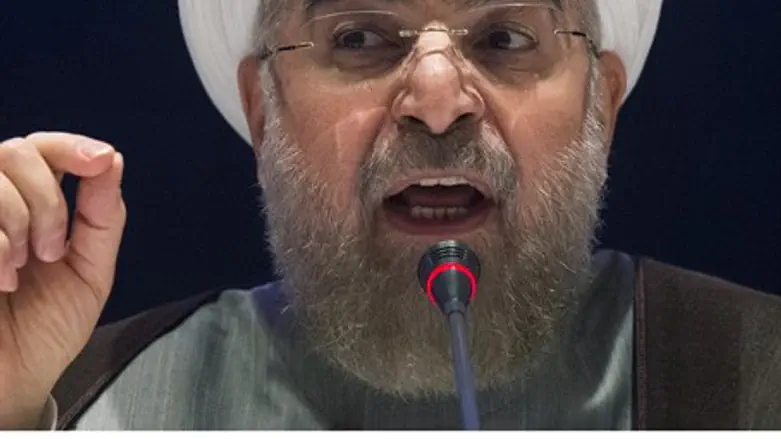
An overwhelming majority of 260 out of 290 Iranian parliament members passed a proposal designed to strengthen the regime's policy regarding the nuclear talks with world powers, with three important clauses contained in the document.
The first clause demands a removal of all sanctions against Iran that were imposed by the United Nations (UN) Security Council, as part of implementing a nuclear deal.
In the second clause, the Iranian parliament called for a preservation of Iran's nuclear infrastructure and rights to develop nuclear power according to article 4 of the Treaty on the Non-Proliferation of Nuclear Weapons (NPT).
Finally - and most significantly - the proposal delineates that if any of the obligations of the nuclear deal are breached, the deal will be considered null and void, and Iran will restart its uranium enrichment to the "level required by Iran's needs."
Iran has been demanding to have 190,000 centrifuges, an amount allowing it to produce a full nuclear arsenal within weeks.
Israel has argued that leaving Iran with uranium enrichment capabilities in any deal would be disastrous, with Israeli Ambassador to the US Ron Dermer pointing out that 17 nations have peaceful nuclear programs and not a single one of them enriches uranium.
It has been noted that the newly passed proposal constitutes an additional Iranian attempt to pressure the US and world powers to agree to the nuclear deal being formulated ahead of a March 31 deadline, as Iran attempts to portray that there are no alternatives to the deal given that Iran will push forward with nuclear development if there is no agreement.
Prime Minister Binyamin Netanyahu in his Congress address earlier this month stressed that the US can stand firm in its crippling sanctions and force Iran to concede, urging the US to pursue a better deal.
Under the deal being created Iran has been unwilling to give up on its existing nuclear infrastructure, with the agreement being limited in time as well as offering a complete removal of sanctions in exchange for the "freeze" of nuclear development.
Those opposing the deal point out that removing the sanctions will allow the Islamic regime to advance nuclear development covertly given that those capabilities will not be removed, and likewise Iran will be allowed to continue pumping up its military capabilities and expanding its regional influence.